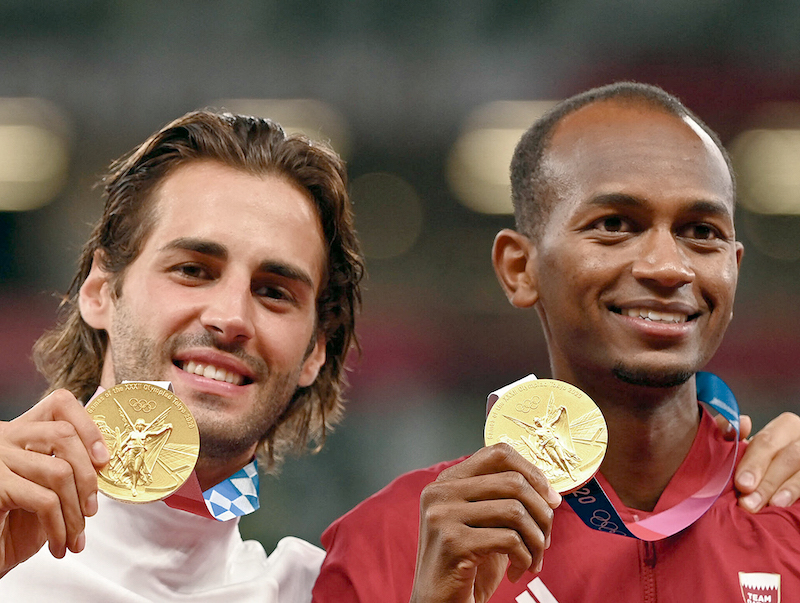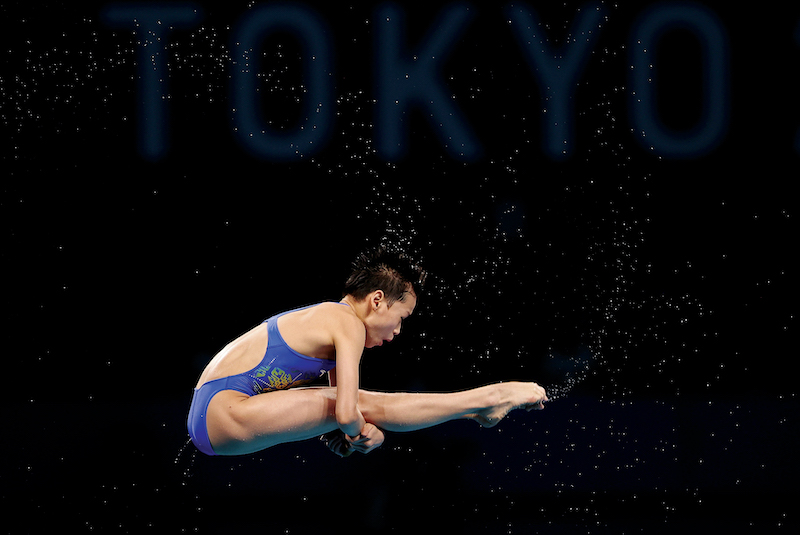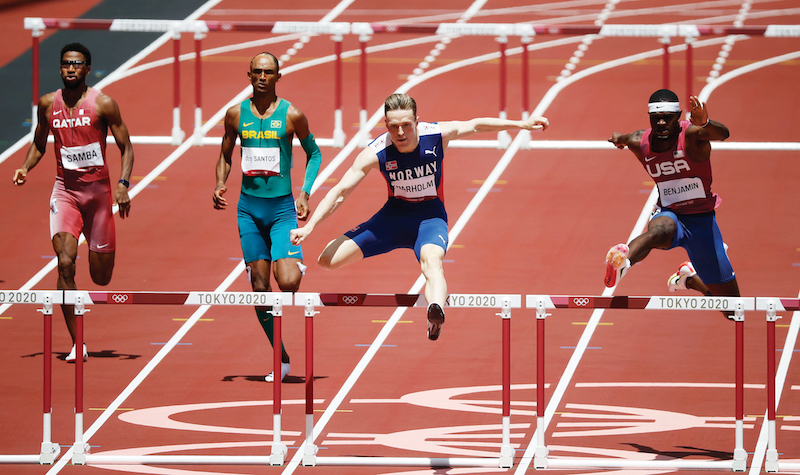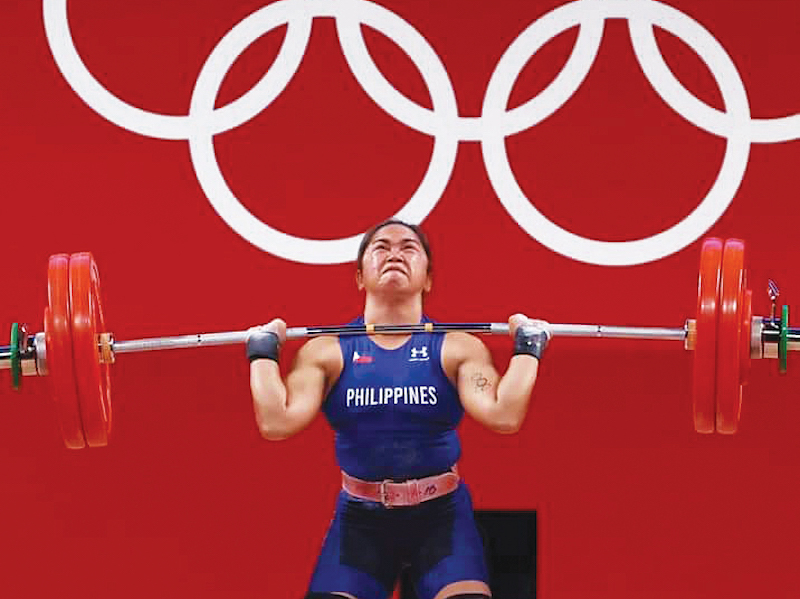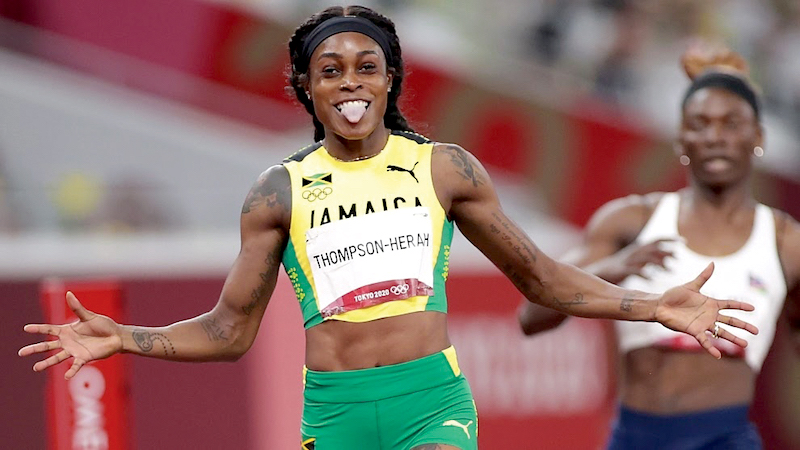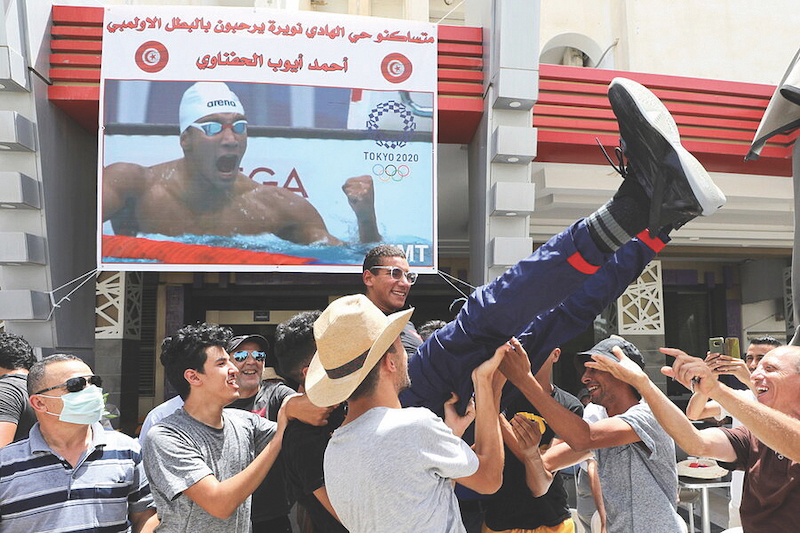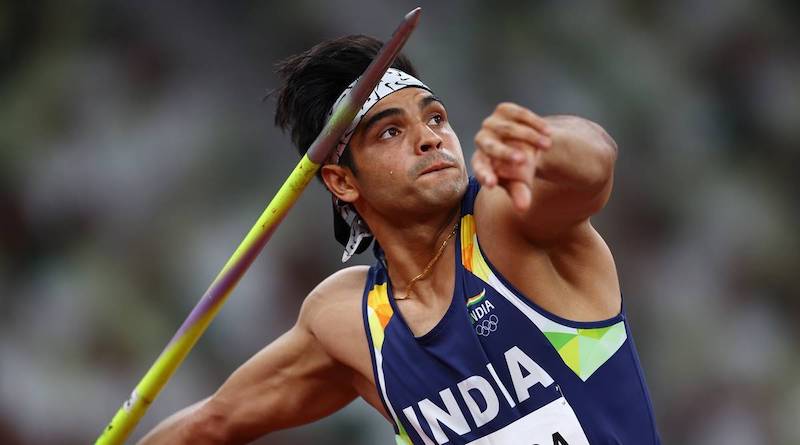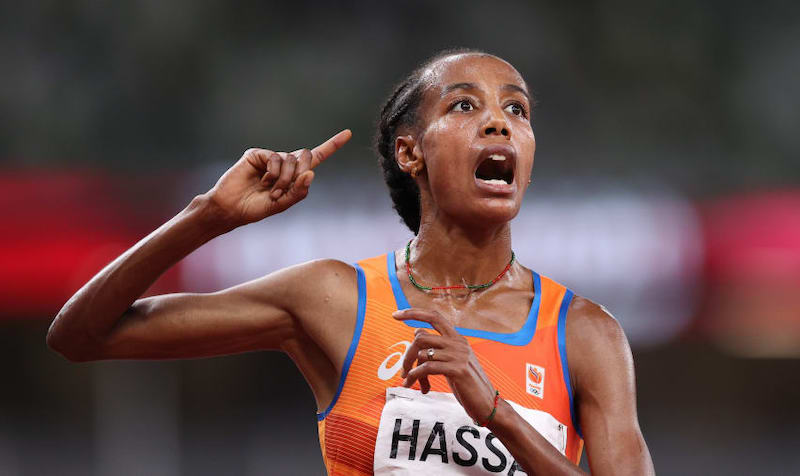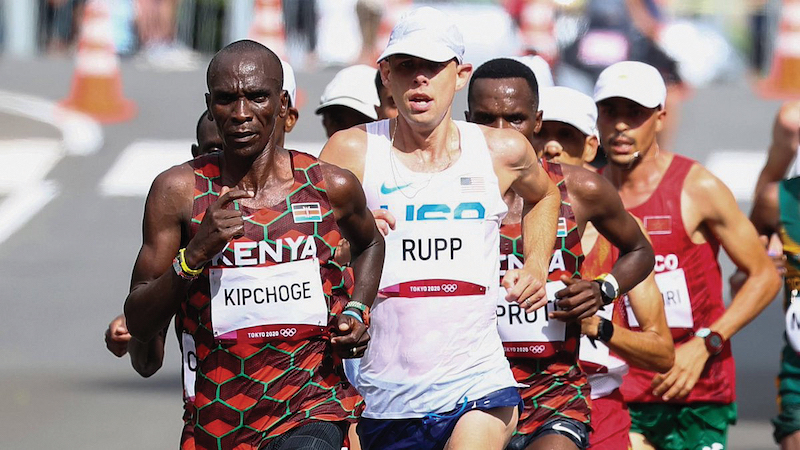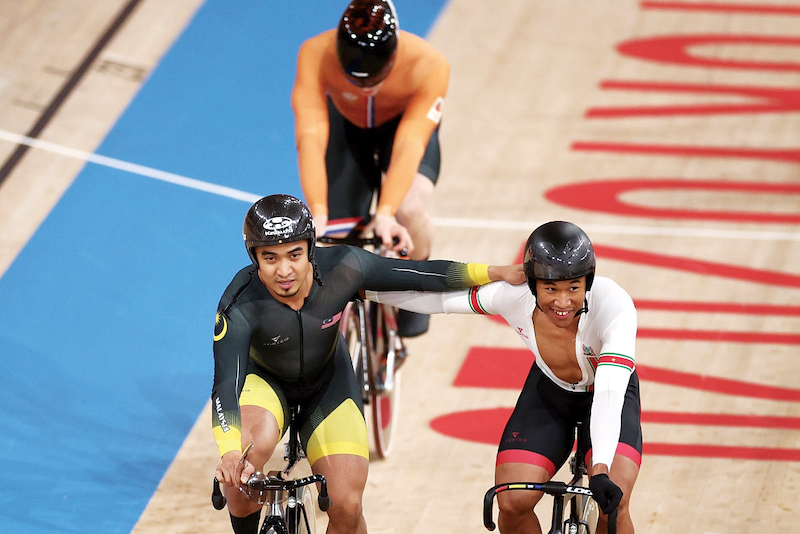
The Games were served up by 13,000 competitors who had sacrificed so much just to take part (Photo: Reuters)
We were expecting a funeral; what we got was a blast. A fantastic, groundbreaking exhibition of athleticism, skill and courage that carved its own marble tablet of Olympic history against all odds. Delayed a year and short on A-listers — no Bolt, no Phelps and barely a twist from Biles — it created new ones. The Pandemic Games will resonate through the ages.
Like the Euros, it was “Mark Twain” all over again: dire rumours proving exaggerated. The prognosis was bleak, experts feared the worst and Japan braced itself for it. Even the athletes wondered what they were letting themselves in for. The watching world turned on the TV with trepidation.
The opening ceremony was appropriately sombre and when the biggest early story was about the biggest name not competing, we wondered if the event was jinxed. American gymnast extraordinaire Simone Biles not only quit, she also sparked a global debate about mental health in sport.
But when her all-round title went to compatriot Suni Lee and we saw the celebrations in Minnesota, these Games seemed to turn a corner. At the countless “watch parties” held in different time zones, the folks at home were making up for the absentees in Tokyo. The delirium was infectious, and gave a glimpse of what the Olympics really mean. And for the viewers, the back stories were as riveting as they were heart-warming.
Typical of these was Lee’s. The 18-year-old is the first Hmong American to win an Olympic medal. Her parents emigrated from Laos, and Lee spent much of the pandemic looking after her dad after an accident left him paralysed. His joy said it all. The Five Rings of the Games still encircle the four corners of the world, and a trend was set: the first post-Bolt Games would belong to bolters.
sunisa.jpg
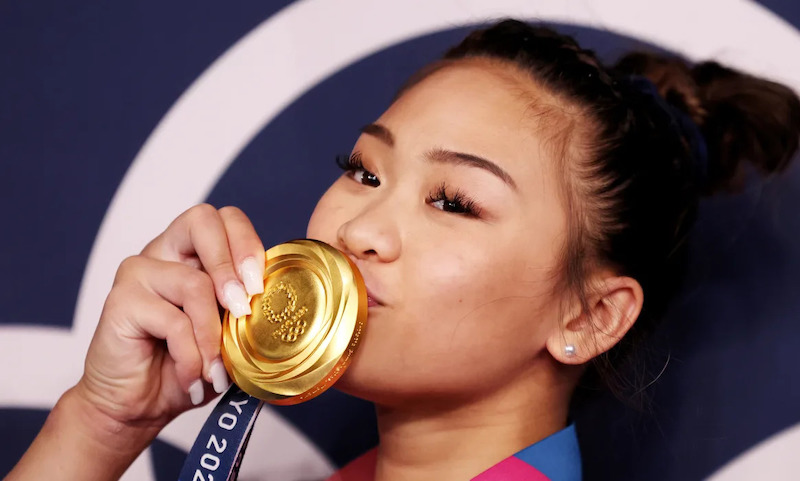
With 60,000 empty seats in the main stadium, the Tokyo Games had some way to go to become the best Olympics, but the kaleidoscope of seat colours seemed to cloak the vacuum. For viewers, the close-up drama was pretty much the same and there was enough going on for us to forget the lack of atmosphere. The hosts’ doubts also began to ease once a few Japanese medals had been won.
They were distraught when their poster girl Naomi Osaka, who had lit the flame, bowed out of the tennis event, but shocks are page-turners for a tournament narrative. Biles was the biggest shock, although she did show enough mental strength to return for a bronze. Also high on the Richter scale were Novak Djokovic going home empty-handed and the all-conquering US women’s football team not making the final.
Strange circumstances may level things up, but they can also inspire and, helped by a springy surface, springier shoes and, most of all, genuine rivalries, the track served up races for the ages. Uncannily, the 400m hurdles saw great duels and world records in both the men’s and women’s events on successive days.
Bolt’s baton was picked up by Jamaica’s women, with Elaine Thompson-Herah becoming one of the Games’ stars in the sprints. Sifan Hassan dominated the distances while over one lap, Allyson Felix, now 35, still glittered. And she was spot on when she said: “The women showed up.”
naomi_osaka.jpg
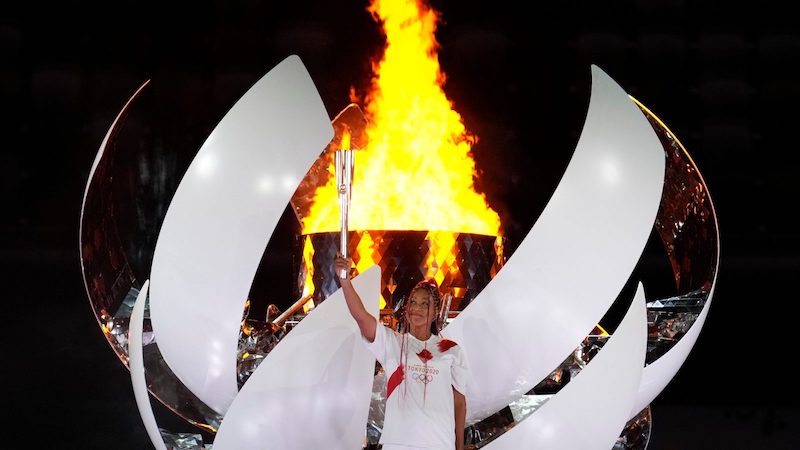
For the first time in Olympic history, the genders were equally represented, and women made their presence felt like never before. Wherever you looked, they were making headlines, telling the best back stories and making these Games feel different. Mixing genders in the pool and triathlon added spice while new events also helped, attracting cooler kids as age limits were lowered.
More woke than any previous Games, it may not have been the fuddy-duddies’ cup of tea: Skateboarding! Wall-climbing! LGBTQ+ participants! But it worked. Among a refugee team was Afghan-born Masoma Ali Zada, who was stoned by the Taliban for riding a bike. She received asylum in France, came last but, like her teammates, it really was about taking part.
When the International Olympic Committee (IOC) added “together” to the motto “Faster, Higher, Stronger”, critics warned that too much togetherness risked a drop in standards, but there was no such thing: a mix of world records, perfect dives and stunning displays on skateboards and BMX bikes had observers spellbound.
There were so many heroes we wondered if that extra year meant only the grittiest had qualified. They came from both central casting and left field. All-American swimmers such as Katie Ledecky and Caleb Dressel, who added to their legends, and school kids who had been too busy to do their homework.
kokona_hiraki.jpg
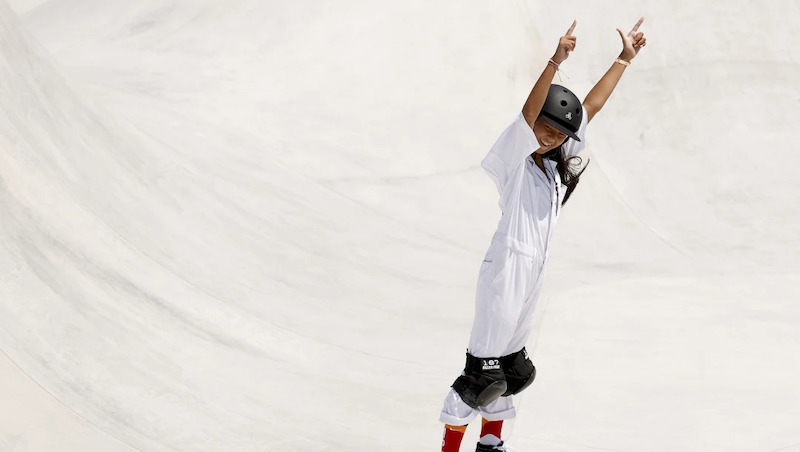
Medallists ranged from those who are pre-pubescent to pension-age. Japan’s 12-year-old skateboarder Kokona Hiraki was the youngest; Australia’s Andrew Hoy, 62, in eventing, the oldest. There was a 46-year-old gymnast from Uzbekistan, Oksana Chusovitna, in her eighth Games. It was a rojak of humanity, sons and daughters of immigrants from Third World countries now first among equals under their new flags.
It was not without crashes, an asylum seeker, complaints about the restrictions and food, and a horse that wouldn’t jump (and cost its rider a shot at gold), but it was a sumptuous feast served up by more nationalities than in the United Nations and superbly staged by reluctant hosts.
Despite all that, many Japanese felt a disconnect and still say it should not have taken place: By the end of the Games, Covid cases were rising and the Paralympics is only a week away. We know the reasons it did happen were mainly to do with cash and contracts, but no one can deny that 13,000 athletes desperately wanted it. And it was their resilience that came to the rescue.
Above all, they showed that the Olympic Games, for all the expense, criticism and white elephants it breeds, is one of the great survivors. Wars, terrorism, boycotts, drug scandals and now a pandemic have been thrown at it, but it seems indestructible.
When so many are prepared to sacrifice so much just to take part, it has to be something special. The Olympic spirit showed up too, among the competitors. As the International Olympic Committee president Thomas Bach said, it was they who gave the Ghost Games a soul.
TEN TOP MOMENTS
High jumping, heart-warming
Gianmarco Tamberi (Italy) & Mutaz Essa Barshim (Qatar)
If sportsmanship is a quaint, old-fashioned concept, don’t tell this pair. After hours of fierce competition, they were still tied and preparing for a jump-off, when Barshim had a better idea. After a quick check with officials, he asked his rival if he’d mind sharing the gold medal. Tamberi didn’t need persuading and the two embraced. Luckily, Japan had a spare.
Practice makes perfect
Quan Hongchan (China)
Just old enough to compete at 14, this schoolgirl, who makes 400 dives a day, earned three perfect 10s en route to a record 10m platform total. It was 40 points ahead of that of teammate Chen Yuxi, 15, who took silver. If she barely caused a ripple on the water’s surface, Quan made waves off it as one of the darlings of the Games.
Supermen, super race
Karsten Warholm (Norway), Rai Benjamin (US)
No personalities in athletics? How about Superman? Warholm, 25, didn’t have to rip his shirt; he was just as quick as a bird or a plane. He smashed the world 400m hurdles record in one of the greatest races ever. It was toe-to-toe all the way with runner-up Benjamin, who also beat the old mark.
Worth her weight
Hidilyn Diaz (Philippines)
Stranded in Malaysia during the pandemic, she trained with large water containers tied to a pole when gyms closed. And she needed help from our Ministry of Health to get vaccinated for Tokyo. She ended the Philippines’ 97-year wait for gold with an Olympic record of 55kg. Once wrongly accused of plotting against her president, her reward will be a house and US$650,000 — from the government.
The Thompson Gazelle
Elaine Thompson-Herah (Jamaica)
How to follow Usain Bolt? Make a bit more history. Jamaica’s men couldn’t but their women did – one in particular. Thompson-Herah, 29, broke Flo-Jo’s 33-year-old Olympic record in the 100m, retained both her sprint titles and added the relay for a golden hat-trick.
Outsider is national hero
Ahmed Hafnaoui (Tunisia)
Call him The Outsider. He was drawn in the outside lane, was the slowest qualifier and outside the world’s top 100 a year ago. Even when he won the 400m freestyle, he had to look at the screen to be sure. Only 18 and the second Tunisian swimmer ever to win gold, he went from no-hoper to national hero.
India bowled over by javelin gold
Neeraj Chopra (India)
Cricket-crazy India has long neglected the Olympics, but after its first-ever medal in athletics, that may be about to change. Many of its 1.38 billion population watched spellbound as the army officer’s first throw in the javelin turned out to be the gold medal winner. It was the highlight of India’s best-ever Games haul of seven medals.
From refugee to royalty
Sifan Hassan (Netherlands)
Her impossible dream of a distance treble looked dashed when she fell in the first heat of the 1,500m. But, more Lasse Viren than Mary Decker, the refugee from Ethiopia still won the heat. Hours later, she took gold in the 5,000m. After winning bronze in the 1,500m, she stormed to gold in the 10,000m to become the undisputed distance queen.
Monarch of the marathon
Eliud Kipchoge (Kenya)
His moment lasted 2:08.38 and confirmed him as the marathon GOAT. It was not his fastest time — he’s the only man to have gone under two hours in the event — but he retained his title while the carnage behind him told of how hot the conditions were. Elite runners were reduced to a stagger while, at 36, King Kip maintained his majestic stride.
Rocket Man pockets silver
Azizulhasni Awang (Malaysia)
A veteran of four Olympics at 33, our Pocket Rocket Man added a dash of silver polish to a disappointing Games for Malaysia and improved on his bronze in Rio. Adding even more lustre is the fact that it took a cycling legend, Jason Kenny, to pip him for gold in what has been called the greatest keirin race of all time.
This article first appeared on Aug 16, 2021 in The Edge Malaysia.

